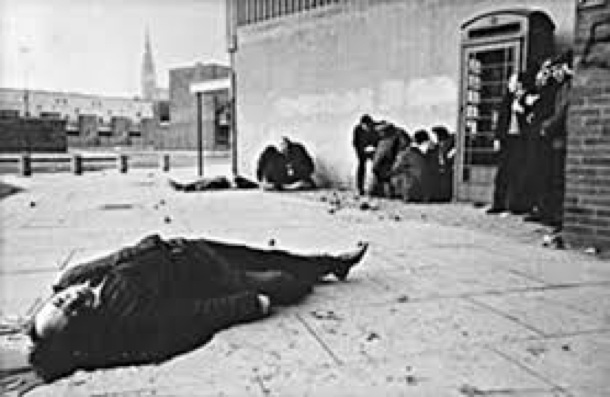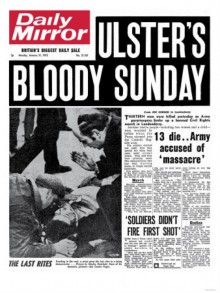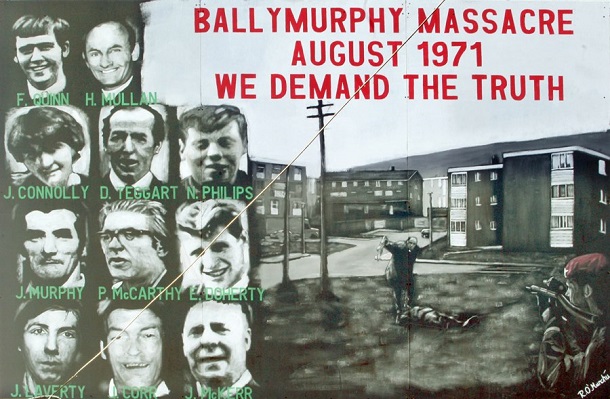12 November 2015
British Army killings in Derry, Belfast and Armagh in the spotlight

A BRITISH ARMY former paratrooper, arrested on Tuesday 10 November by the PSNI for questioning related to the Bloody Sunday killings by the Parachute Regiment in Derry in January 1972 was released on police bail the following day.
The man, identified only as “Soldier J”, is believed to have been questioned over the killings of three men – Michael McDaid, John Young and William Nash – shot dead at the rubble barricade on Rossville Street.

The wounding of Alex Nash, William's father, who was also shot at the Rossville Street barricade as he tried to rescue his son, is also believed to be part of the investigation.
The 66-year-old suspect was arrested in County Antrim and questioned at a PSNI station in Belfast.
Ballymurphy
The arrest of the former paratrooper was the second time this week that the bloody record of the elite Parachute Regiment was under scrutiny for its record during the conflict.
On Monday 9 November, a motion co-sponsored by Sinn Féin and the Alliance Party calling for British Secretary of State Teresa Villiers to join with the Irish Government in supporting an investigation into the Ballymurphy Massacre by the Parachute Regiment in 1971 was lost 48 votes to 44 when the Democratic Unionist Party and the Ulster Unionist Party pulled together to defeat the bid to uncover the truth as to why 11 civilians were shot dead by the Paras.
The inquiry was to be conducted on the same basis as the recent Hillsborough Football Stadium investigation.
The motion – signed by Sinn Féin West Belfast MLAs Alex Maskey and Rosie McCorley with the Alliance Party's Trevor Lunn – called for the inquiry to be jointly funded by the Irish and British governments.
Speaking to An Phoblacht afterwards, Pat Sheehan MLA, who represents the Ballymurphy area, criticised the unionst stance on the motion. He accused unionists of making a “threadbare argument” as they countered that as there were no investigations into the La Mons or Kingsmills killings then the Ballymurphy killings shouldn't be investigated.
Briege Voyle, whose mother Joan Connolly was of those killed, remains defiant and said “the Ballymurphy families will keep coming back”.

County Armagh
Meanwhile, a former member of the British Army's Life Guards Household Cavalry regiment (whose role includes ceremonial duties on horseback at Horse Guards Parade in Westminster) has been returned for trial for attempting to kill a man with learning difficulties.
John Pat Cunningham, from Benburb in County Armagh, was killed in June 1974 by members of a British Army patrol as he made his way home from Benburb Priory, where he worked as a casual labourer.
The 27-years-old would be described today as a vulnerable adult who had a mental age of between 6 and 10. He also had a fear of men in uniforms, which is why he is believed to have run away when he saw the British military patrol in battledress and carrying weapons.
Dennis Hutchings, from Cornwall, is charged with trying to kill Cunningham as he was one of two soldiers, “A and B”, who fired five shots at the fleeing man.
It has never been established whose rounds killed the farm worker.
Follow us on Facebook
An Phoblacht on Twitter
Uncomfortable Conversations

An initiative for dialogue
for reconciliation
— — — — — — —
Contributions from key figures in the churches, academia and wider civic society as well as senior republican figures





